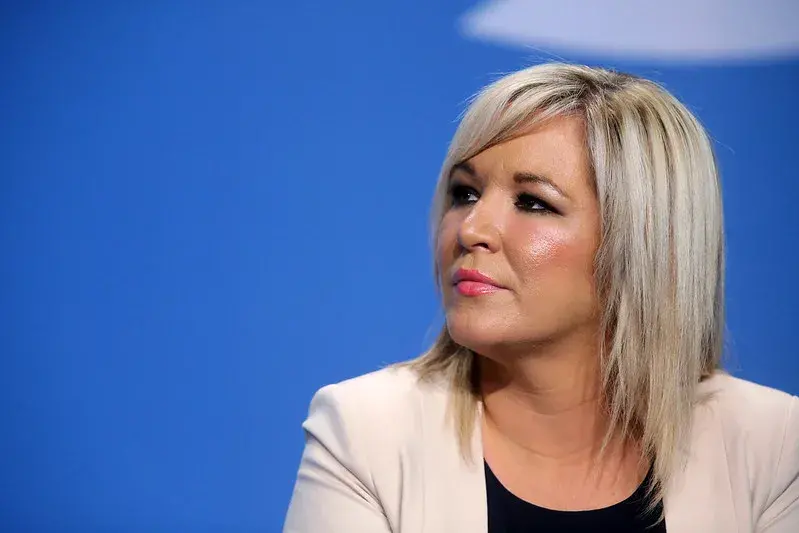A state that was established a hundred years ago to guarantee the supremacy of pro-British unionists, Northern Ireland, named an Irish nationalist as its First Minister on Saturday in a historic event.

For the first time in its history, Northern Ireland’s parliament named an Irish nationalist as its First Minister on Saturday, a landmark event in a state that was created a hundred years ago to secure the supremacy of pro-British unionists.
The appointment of Michelle O’Neill, 47, was the outcome of a breakthrough 2022 election that showed the growing influence of Sinn Féin, a party that has declared its ultimate goal of a united Ireland is “within reach”.
The appointment coincided with the end of a two-year stalemate in the power-sharing government, as the DUP, Sinn Féin’s pro-British counterpart, agreed to a deal with the British government to ease the trade barriers caused by Brexit.
“This is a historic day that marks a new beginning,” O’Neill said to the assembly. “I will serve everyone equally and be a First Minister for all. “I apologise for all the lives lost during the conflict without exception,” O’Neill added.
Chris Heaton-Harris, Britain’s minister for the region, said the resumption of government was a “great day for Northern Ireland”. O’Neill belongs to a new generation of Sinn Fein politicians who were not directly involved in the region’s long and violent struggle between Irish nationalists who wanted to join Ireland and pro-British unionists who wanted to stay in the United Kingdom.
Sinn Féin, which used to be the political arm of the IRA, was long ostracised by the political establishment on both sides of the border. It is now also the most popular party in the Irish republic.
The position of deputy First Minister, which has the same power but less symbolic significance, was taken by the DUP’s Emma Little-Pengelly.
The assembly building was surrounded by heavy security, but there was no sign of unrest. The main opposition to O’Neill’s appointment came from the Traditional Unionist Voice party, which rejected the DUP’s trade agreement. “We have a Sinn Féin First Minister, but not in my name, nor in the name of thousands of unionists who will never submit to IRA Sinn Fein,” said Jim Allister, the only deputy of the TUV.
Sinn Féin has been promoting the idea of unity this week, but all politicians in Northern Ireland face a lot of pressure to address the everyday issues after the two-year suspension put a strain on the already limited public services.
A referendum on unity depends on the decision of the British government and opinion polls consistently show a clear majority in favour of staying part of the United Kingdom.
The two-year shutdown is likely to increase the demand for reform of the rules that have enabled the largest party on either side to repeatedly paralyse the power-sharing for long periods. Both the Irish and British governments have said they are willing to consider reform.
Sinn Féin’s appeal to voters at Northern Ireland’s 2022 election was based on economic issues, following its strategy in Ireland where the party has been successful campaigning on everyday issues like housing.







